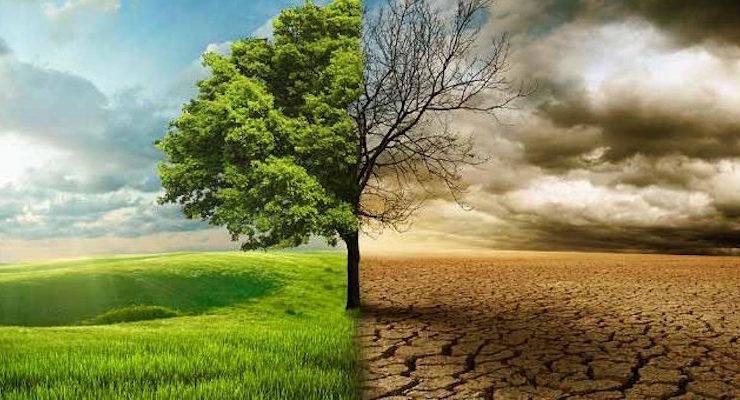UN targets 20 million Nigerian youth for climate resilience drive
The United Nations has announced plans to equip over 20 million young Nigerians with the knowledge, skills, and opportunities to lead sustainable climate action.
This initiative, part of UNICEF’s Green Rising programme, comes ahead of the 2025 United Nations Climate Change Conference (COP30) in Belém, Brazil, where Nigeria’s youth delegation is expected to present a unified national statement on climate justice and resilience.
This was disclosed at the opening of the Local Conference of Youth Nigeria 2025 (LCOY Nigeria), which began on Wednesday in Abuja.
The two-day event, organised by the Youth Orientation for Transformation and Action (YOTA) in collaboration with ActionAid Nigeria, is bringing together young innovators, environmental advocates, and policymakers to chart a unified youth position on climate justice for presentation at COP30.
Chiranjibi Tiwari, UNICEF Climate Change and Water, Sanitation and Hygiene (WASH) Manager, said the United Nations is working to empower more than 20 million young Nigerians with the knowledge, skills, and opportunities to drive climate adaptation and mitigation efforts.
Read also: COP30: UN climate report spurs call for Africa to scale up green investment
He explained that Nigeria’s over 140 million youth population represents a powerful force for climate transformation if adequately equipped.
“Climate change affects everyone, but its impact is especially harsh on vulnerable groups such as children, women, and marginalized communities.
“Nigeria’s young people have the power and energy to provide millions of innovative solutions to the climate crisis if given the right support”, Tiwari said.
Tiwari disclosed that UNICEF’s global Green Rising Initiative aims to mobilise 20 million youths worldwide for climate action, with Nigeria serving as one of its pioneer countries.
He encouraged young Nigerians to connect with the Young People’s Action Team (YPAT) and the Green Rising network to access opportunities and actively contribute to environmental sustainability.
Highlighting findings from UNICEF’s recent Youth Climate Poll, which engaged more than 26,000 Nigerian respondents, Tiwari noted that young people are eager to shape national climate policies and solutions.
The youth identified the need for greater awareness on climate issues, enhanced skills for green jobs, inclusion in decision-making processes, and meaningful engagement in policy dialogues that impact their future.
He said the poll also revealed that youths want government and development partners to prioritise large-scale awareness campaigns, afforestation efforts, renewable energy expansion, youth-led innovation, and climate-resilient infrastructure.
“Investing in young people is investing in a prosperous nation. Nigeria’s youth must seize every platform to raise their voices and lead the change toward a sustainable future”, Tiwari added.
Representing Andrew Mamedu, Country Director, ActionAid Nigeria, Judith Gbagodi, Governance Specialist, described the conference as more than just a meeting, a youth-led movement for bold ideas and practical solutions to climate change.
“It is inspiring to see such an incredible assembly of young innovators and changemakers from across Nigeria who refuse to stand by while our planet faces one of its greatest challenges.
“This conference is a movement driven by young people determined to secure a sustainable future for themselves and generations to come”, Gbagodi said.
She stressed that climate justice must be inclusive and people-centred, ensuring that the most vulnerable are not left behind.
According to her, LCOY Nigeria provides an opportunity for youths to deliberate on what climate justice means in the Nigerian context and how they can influence national and global action.
“Climate action is not only about reducing carbon emissions and designing policies. It is about people, equity, dignity, and the right of every young person to inherit a livable planet. Through your voices, Nigeria’s youth will shape the National Youth Statement that will be presented at the global stage to amplify our aspirations in international climate negotiations”, she said.
Gbagodi encouraged participants to fully engage in discussions, ask critical questions, share experiences from their communities, and collaborate across regions and sectors.
“The future we desire will not be handed to us. We must build it together through courage, creativity, and solidarity”, she added.
Also speaking, Amara Nwankpa, Director General of the Shehu Musa Yar’Adua Foundation, emphasised the importance of the conference in ensuring Nigerian youth voices are heard at COP30.
He said the outcomes from the Abuja event would form part of the country’s youth advocacy inputs at the global climate summit in Brazil.
Muhammad Shuaibu, Country Focal Point for LCOY Nigeria, described the National Youth Statement emerging from the conference as an epochal policy document that captures the collective demands and recommendations of Nigerian youths on climate action.
He said the statement is being developed through broad consultations at regional and national levels to serve as a policy guide for government institutions, development partners, and duty bearers.
Shuaibu noted that the youth-led statement will be presented at COP30 as Nigeria’s unified voice on climate governance, energy transition, climate finance, and resilience.
Participants, including Charity Kolo and Patrick Amaibi, commended ActionAid for its inclusive governance approach and for creating platforms that amplify the voices of young Nigerians in global climate discussions.
They expressed optimism that Nigerian youths will make meaningful contributions to global conversations on climate adaptation and resilience at COP30.

